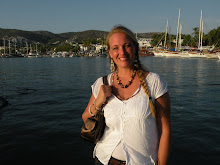When I asked my students, “Who knows you best?” They do not say, “My therapist.” First mentioned is, “Mother,” secondly, “Father.” Mothers and fathers are examples of someone who has served them, shared their life or loved them daily in simple ways. They are not people who are particularly astute in knowing laws and abstractions about human behavior. They are people who have served, lived, and shared a world together.
When studying the early existentialists, Martin Heidegger (1889-1976) and Soren Kierkegaard (1813-1855), I came to appreciate a new way to look at knowledge. These two existentialists pointed out a subjective type of knowing that is more fundamental, than a scientific analysis or what Kierkegaard calls objective truth. This experiential type of knowing is the most important way to find meaning in both material objects and ourselves. The example of mothers being the person who best understand you illustrates this insight.
So to truly understand another person, you need to do things like: eat together, work on a job, share stories, take care of one another when sick, and live with each other in a loving, serving, and unselfish way. Does this not tell you about another way to truly understand yourself and other people? This conclusion is just the opposite of what we usually think about when looking to understand our-selves.
.


No comments:
Post a Comment